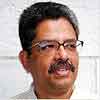Just when you thought it was safe to go out into the playgrounds again comes the news of a brand new fear – playgrounds might be too safe. What fear of injury hasn’t already removed from many playgrounds around the world – tall slides and high climbs, for instance – fear of litigation is steadily removing. No one has sued a park for its sandbox as far as I know, but all it takes is a slightly scoured knee and a bit of imagination.
For years our parents and their parents dismissed broken bones and the occasional bleeding nose as small price to pay for greater emotional confidence. “You must fall off the bicycle a dozen times before you can learn to ride it,” was a family motto in the days when I was struggling to learn how to. I fell off 11 times, which probably accounts for the fact that I never quite mastered the art. One more grazed knee would not have mattered; the reward would have been the ability to get on the bicycle, pedal, brake and get off all on the same day. I could pedal, brake and get off (this last sometimes without any effort), but getting on was where my weakness lay.
It might take you years to learn that you were a clumsy oaf, but meanwhile, scientists and psychologists go out of their way to make you feel a superior being who just happened to be too good for bicycles.
Children need to encounter risks on the playground, says a professor of psychology in Norway. Other psychologists have discovered that a child who is hurt in a fall before the age of nine is less likely to have fear of heights. True, but he might have other fears that psychologists may not immediately connect. For example, my fear of running out of paper in the printer may be a direct result of my inability to get on to a bicycle in a public place.
But who will bell the psychologists, a breed of professionals who can’t bear the thought of going to bed every night without alarming a goodish percentage of our population. If it isn’t that playgrounds are too safe, then notebooks are too rectangular and likely to encourage sexual fantasies, or cricket balls are too round and likely to get fast bowlers to speak ill of their opponents. All is grist to the mill.
If you join the dots in anyone’s life, it is possible to find the strangest reasons for the, well, strangest behaviour. A serial killer might have got that way because of the manner in which the leaves of a tree outside his window in childhood threw a shadow on the wall in the shape of a dagger. Or a gun. Or a bottle of arsenic.
It is possible that my fear of entering an elevator and turning right only to find that the buttons are on the left might be traced to discovering an earthworm in a sandbox in the park. These are things one can’t blame one’s parents for, which is always a bit of a downer. As my son is discovering these days – as I myself did many years ago – there is nothing like the joy of blaming everything on your parents. Mother’s Day cards are full of messages like: ‘God couldn’t be everywhere so he created Mothers.’ The truthful ones would say, ‘The Devil couldn’t take the blame for everything, so he persuaded god to create Parents.’
Anyway, back to the particular from the general. Back to our ‘too safe’ playgrounds. How do we find the balance between ‘unsafe’ and ‘too safe’? One way is to use modern technology. The tall climb (unsafe) may be made more safe by introducing an elevator so children can have both the thrill of reaching the top and doing it safely. Remember the Tarzan ropes? The child who likes to pretend to be Tarzan may wear one of those gizmos on his head which give him the feeling of swinging while ensuring his feet don’t leave the ground. Technology is this generations’ emotional pincushion, parent-substitutes which can be blamed for everything. So why not use it?
Scientists have identified six categories of risky play. So far they have said nothing about wearing gizmos for effect. Quickly, then, before they do.
